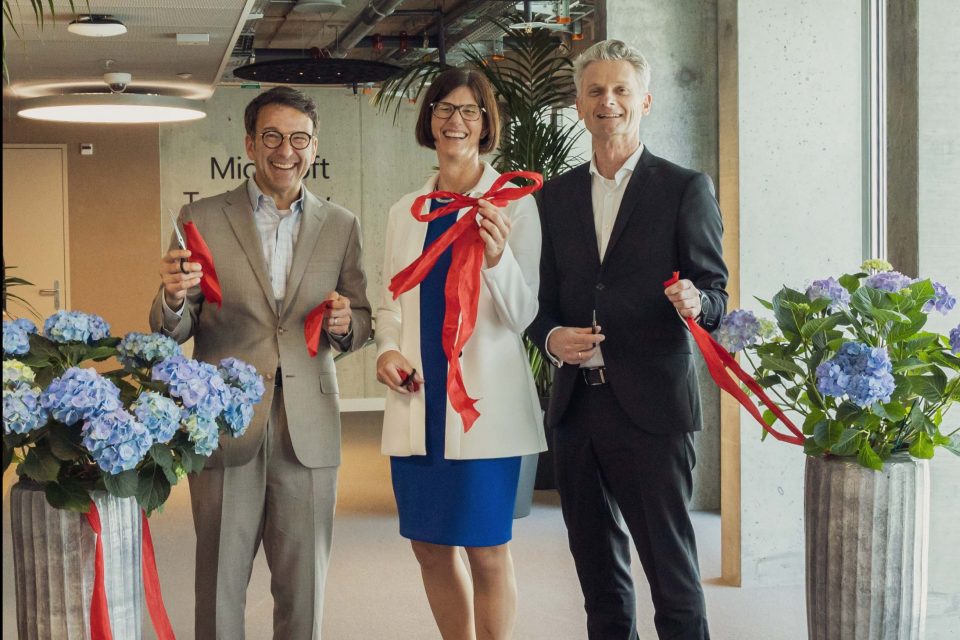On May 20, Microsoft Switzerland has officially opened its Microsoft Technology Center at its new headquarters in The Circle at the Zurich Airport. This newly created space will deliver immersive industry experiences and deep technical engagement focused on business outcomes to customers. This investment marks another pillar in Microsoft’s commitment to Switzerland – for Switzerland.
People only use technology they understand and trust. “That’s why we have added an extra 1,000 square meters to our new Headquarters at the Circle to build a Microsoft Technology Center (MTC), where our customers can envision the art of the possible and make it real,” says Catrin Hinkel, CEO of Microsoft Switzerland. The aim is to create a lab and experimentation environment. The MTC in Zurich will be an innovation hub where new technology and industry-specific scenarios can be tested with customers.
More concretely, Microsoft has worked closely with a selection of customers and partners (ABB, Accenture, Afca., Avanade, Aison Technologies, Audiocodes, Backbase, biped, Cistec, Decentriq, Franke AG, Hypothekarbank Lenzburg, Incremed, Johnson Controls, Lusee, M-Industry, Philips, Qumea, Rhomberg Sersa, Schaerholzbau AG, Sideeffects, sipcall, Sleepiz, Swiss Smart Factory, Swisscom IoT, Swisspro, Trifact, UBS, University Hospital of Balgrist, University of St. Gallen, Veripark, and Völker) to recreate their real-life solutions – in a way to facilitate co-innovation even more to achieve positive business outcomes. This will allow for a collection of offerings such as envisioning workshops, strategy briefings or hands-on labs to support customers on their own digital transformation journey.
For Catrin Hinkel, the opening of the MTC goes even further: “This is a significant investment to further drive innovation in Switzerland. Even though we are a global company, we have been rooted in Switzerland for over 30 years now and built trusted relationships with tens of thousands of customers together with our 4,600 Swiss partners.” Therefore, further investing in these relationships is a natural next step for Microsoft Switzerland.
At the official opening on May 20, Microsoft welcomed a group of about 80 guests consisting of various executives, public sector representatives and media. Keynote speakers included Olivier Schraner, CTO of Technology Services at UBS, Erich Herzog, board member of Economiesuisse, Judson Althoff, Executive Vice-President and Chief Commercial Officer of Microsoft Corporation, and Ralph Haupter, President of Microsoft EMEA.
Marc Holitscher, National Technology Officer at Microsoft Switzerland, has also announced the launch of the Innovate Switzerland Community at the event – learn more here. Together with 30 Swiss organizations, Microsoft is building a community to advance innovation and the responsible use of data and public cloud technology in Switzerland.





